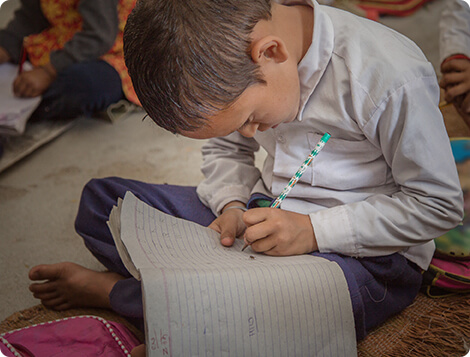- Contact : +919084644007 E-mail : [email protected]
Primary Education:
Primary education is crucial for fostering a knowledgeable society and empowering future generations. It lays the foundation for lifelong learning and skills development. In India, the Right to Education Act mandates free and compulsory education for children aged 6 to 14. However, challenges remain, with a dropout rate of about 17% at the primary level in 2021-22. Proper education improves literacy rates and can significantly contribute to economic growth and reduced poverty.
Health:
Health is a significant determinant of individual and societal productivity. India faces numerous health challenges, including malnutrition and infectious diseases. According to the National Family Health Survey (NFHS-5), around 30% of children under five are stunted, reflecting chronic malnutrition. Access to healthcare services is uneven, with rural areas facing substantial barriers.
Nutrition:
Good nutrition is vital for children’s physical and cognitive development. Malnutrition hinders not only educational outcomes but also economic development. The Global Hunger Index 2021 ranked India 101 out of 116 countries, highlighting serious levels of hunger and undernutrition. Ensuring adequate nutrition can enhance learning abilities and overall health in children.
Action Plan to Improve the Existing Situation
Enhancing Access to Quality Education:
Infrastructure Development: Invest in school infrastructure, especially in rural areas, to ensure safe and conducive learning environments.
Teacher Training: Improve teacher training programs to ensure effective teaching methodologies, emphasizing child-centered learning.
Nutrition and Health Programs:
Integrated Child Development Services (ICDS): Strengthen the ICDS program to provide nutritional supplements and health care for children under six and pregnant women.
School Meal Schemes: Expand and improve schemes like the Mid-Day Meal Scheme to ensure all children receive at least one nutritious meal per day at school.
Awareness and Community Involvement:
Health Camps and Workshops: Conduct regular health check-ups and workshops on nutrition in communities to raise awareness and empower families.
Involvement of Parents: Encourage parental involvement in their children’s education and nutrition, fostering a community-based approach.
Monitoring and Evaluation:
Establish robust systems for monitoring education and health outcomes. Use data to inform policy and program adjustments, ensuring that interventions are effective and targeted.
By focusing on the interconnectedness of education, health, and nutrition, India can empower its future generations, enhance productivity, and foster sustainable economic growth.
Guru Devi Social and Animal Welfare Trust in committed to mobilise resources to combat the above tasks with your support.


Leave A Comment